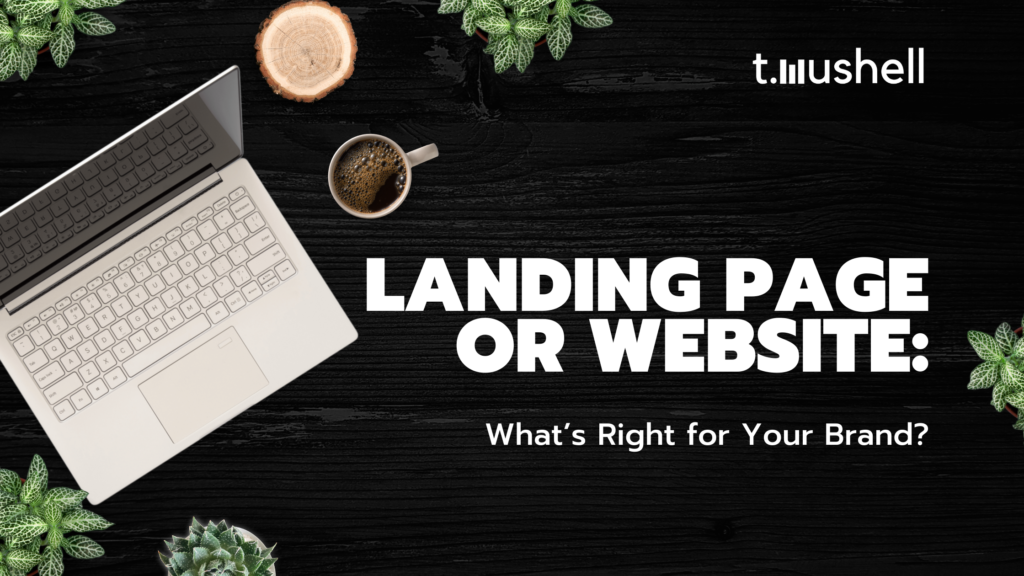
If you’ve ever stared at your screen, debating between a custom-built website or a template, congratulations—you’ve entered the Great Website Dilemma. But don’t worry, I’ve been there, done that, and got the WordPress t-shirt. The good news? Both options can lead to a killer website. The trick is figuring out which one fits your business like a glove. Let’s break it down!
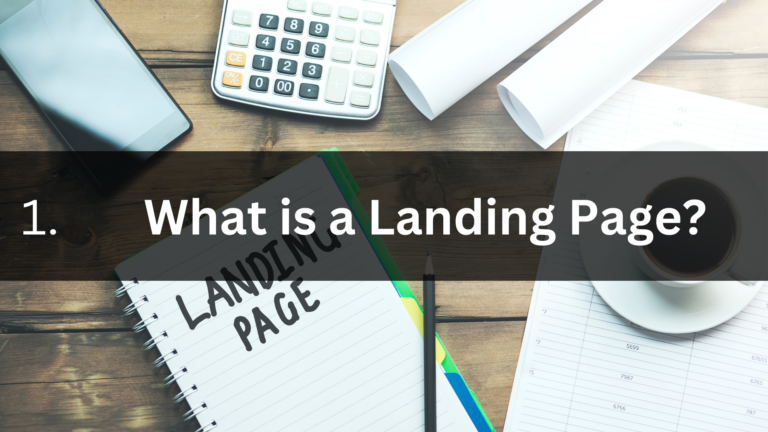
A landing page is a standalone web page, created specifically to drive a single action, such as capturing leads, promoting an event, or selling a specific product. A landing page has one goal, one message, and often, one call-to-action (CTA).
Landing pages are often part of a larger campaign and typically are accessed via ads, email marketing, or social media links. They’re designed to keep visitors focused on one path, without the distractions of a full website.
- Expert advice: Define Your Goal First Before creating a landing page or website, clarify what you want to achieve. This will inform your design, messaging, and overall layout. A landing page should have one main goal, while a website can support multiple objectives.
Pros & Cons of a Landing Page
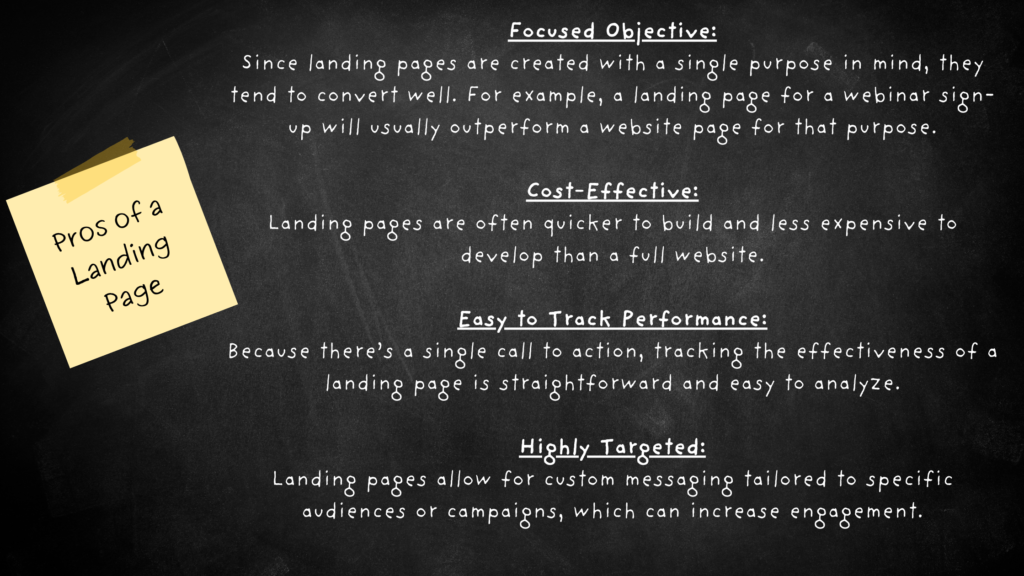
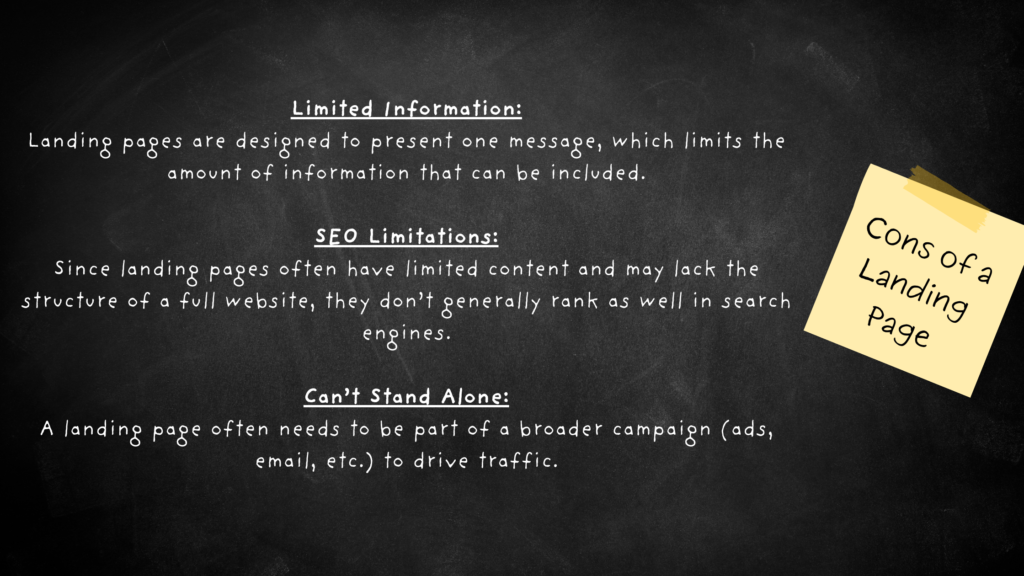
- Expert advice: Incorporate Social Proof. Trust signals like testimonials, reviews, client logos, or case studies can increase credibility. Use these on both landing pages and websites to reassure potential customers that others have benefited from your offerings.
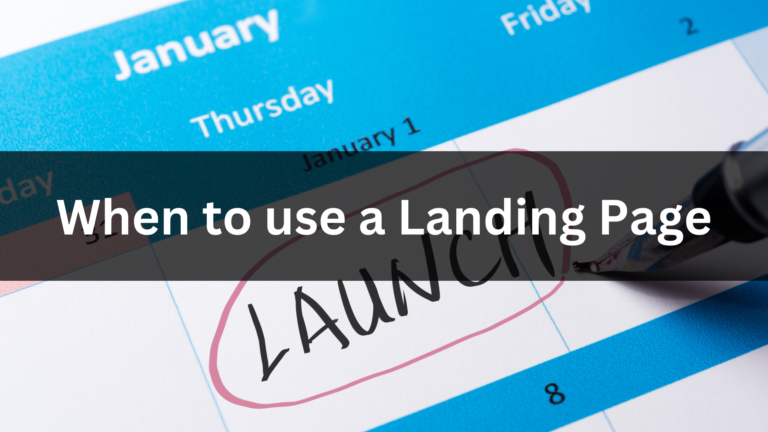
Landing pages work best for short-term, highly targeted campaigns where you have one goal in mind. Here are a few scenarios:
- Product Launches: A new product often benefits from a dedicated landing page, providing all the necessary information without overwhelming visitors.
- Event Sign-Ups: If you’re hosting a webinar or conference, a landing page with a single CTA to sign up is often ideal.
- Lead Generation: Landing pages for lead magnets (like a free eBook or course) are popular in lead generation strategies.
- Expert advice: Prioritize Mobile Optimization. Both landing pages and websites must be mobile-friendly. Since a large percentage of users access the web via mobile devices, make sure your pages are responsive and easy to navigate on smaller screens.
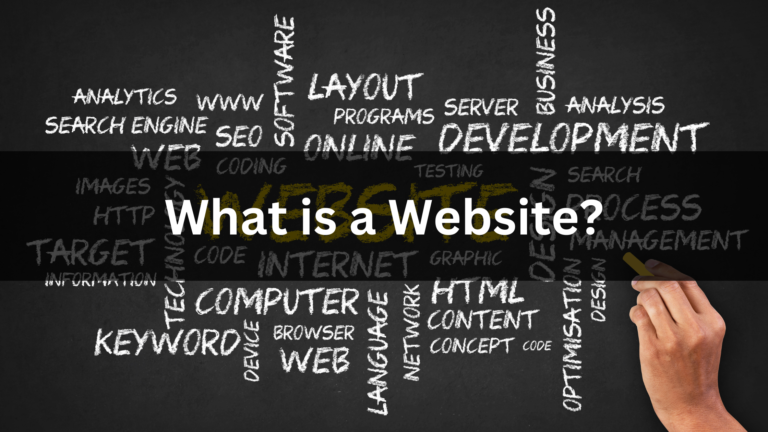
A website is a collection of multiple interconnected pages that provides comprehensive information about your brand, products, services, and more. Websites serve as the digital headquarters for businesses and are designed to offer a broad array of information.
Unlike landing pages, websites offer multiple navigation options, links to social media, and various content types, from blogs and galleries to FAQs and contact forms.
- Expert advice: Whether on a landing page or a website, your CTA should be immediately visible, relevant, and motivating. A well-designed CTA button, with concise wording, can dramatically increase conversions.
Pros & Cons of a Website
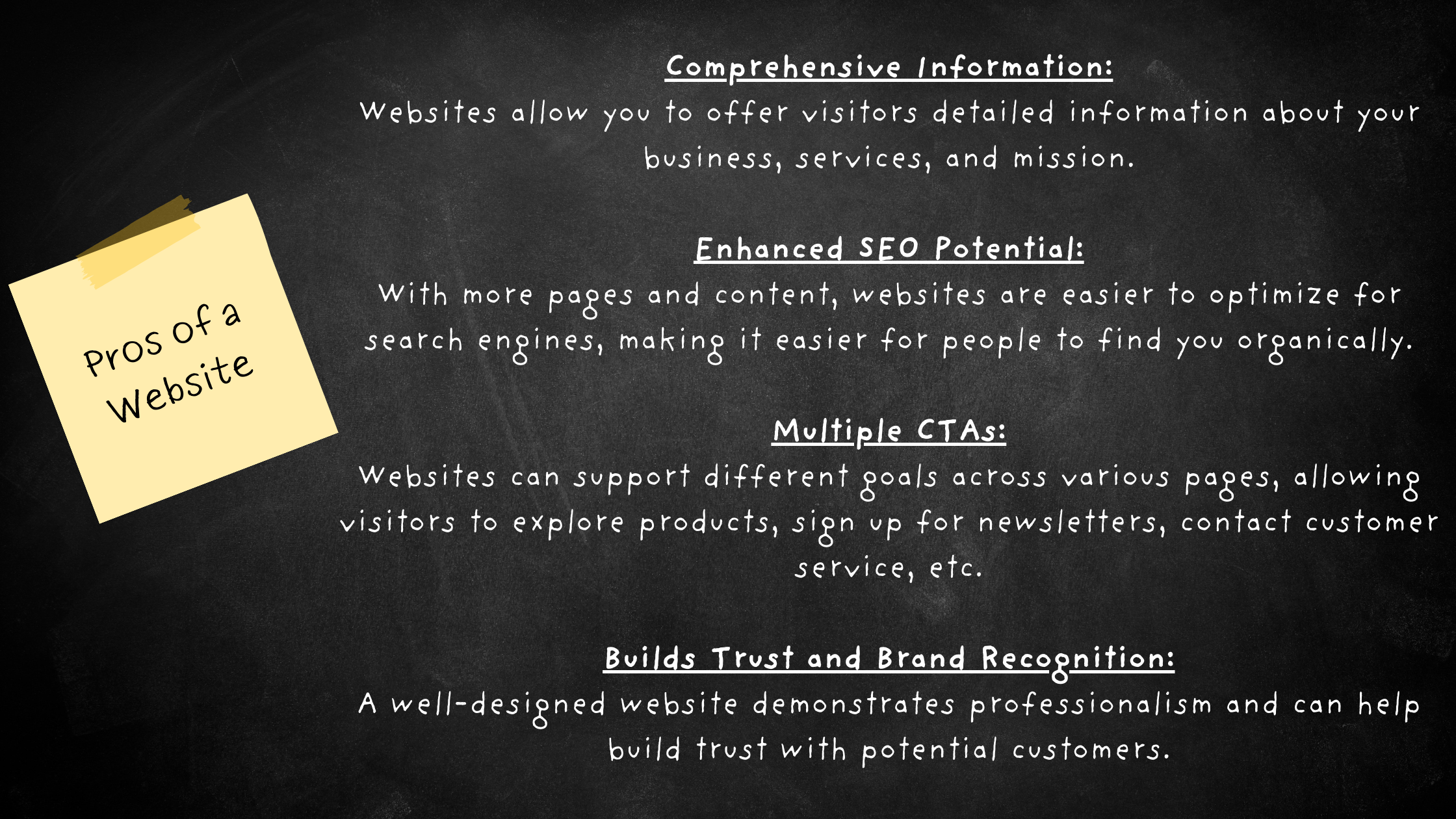
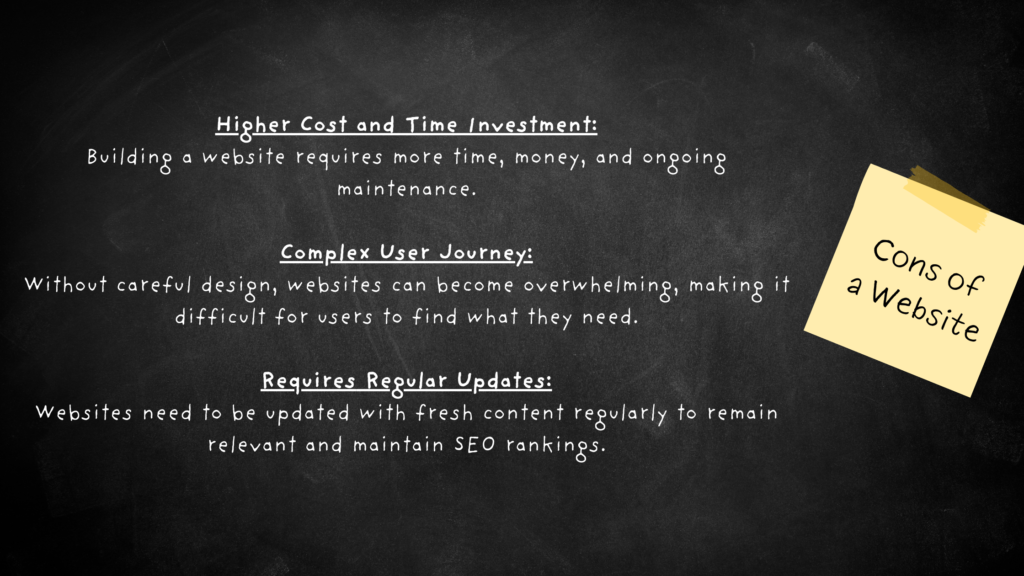
- Expert advice: Set up tracking with tools like Google Analytics or Hotjar to monitor user behavior, bounce rates, and conversion rates. Data insights can reveal areas where users might be dropping off or where content could be improved.

Websites are ideal for businesses that want to establish a long-term digital presence, offer a range of products, or provide comprehensive customer resources. Here are some scenarios where a website is the right choice:
- Small to Medium Businesses (SMBs): For SMBs looking to establish a brand, showcase their story, products, services, and maintain a blog, a full website is necessary.
- E-commerce: If you’re running an online store, a website is essential to host your product listings, process payments, and handle customer accounts.
- Service Providers: Professionals like accountants, consultants, and designers often need a website to display portfolios, explain services, and offer booking options.
- Expert advice: Maintain Consistency in Branding Ensure that your visual and messaging elements (colors, fonts, tone) align with your brand’s identity across all pages. Consistency builds trust and helps users recognize your brand across platforms.
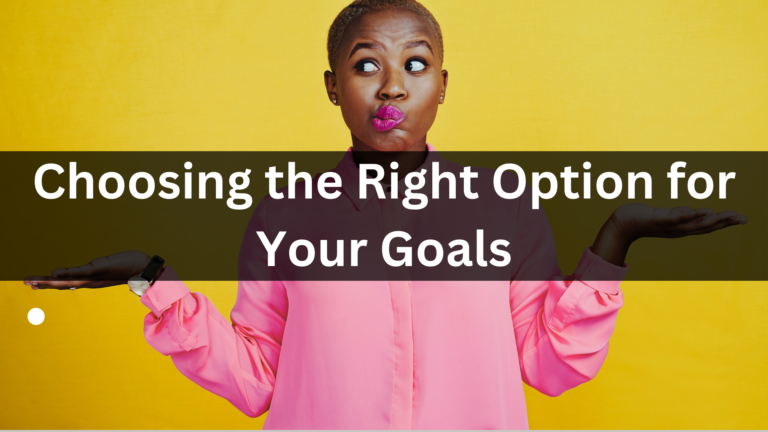
- Short-Term Campaign: Go with a landing page. Whether you’re promoting a new product or an event, a landing page can increase your conversion rate with a streamlined focus.
- Building Long-Term Brand Equity: Choose a website. It provides a strong foundation for building credibility, improving SEO, and enabling ongoing customer engagement.
- Expert advice: Structure your content to lead users naturally through the page. Use headings, images, and contrasting colors strategically to draw attention to key areas like CTAs, benefits, or unique selling points (USPs).
In the end, your decision will depend on the complexity of your business needs, your target audience, and your budget. Often, businesses will use a combination of both: a website for their long-term goals and a landing page for specific, targeted campaigns.
Conclusion
Both landing pages and websites are valuable digital tools when used in the right context. By aligning your choice with your marketing objectives, you can maximize engagement and conversions, while building an online presence that resonates with your audience.
Visit tmushell.com/booktee for landing page and website design, development, audits, and more!
Click HERE to see landing page examples.
Post Tags :



